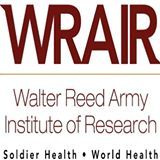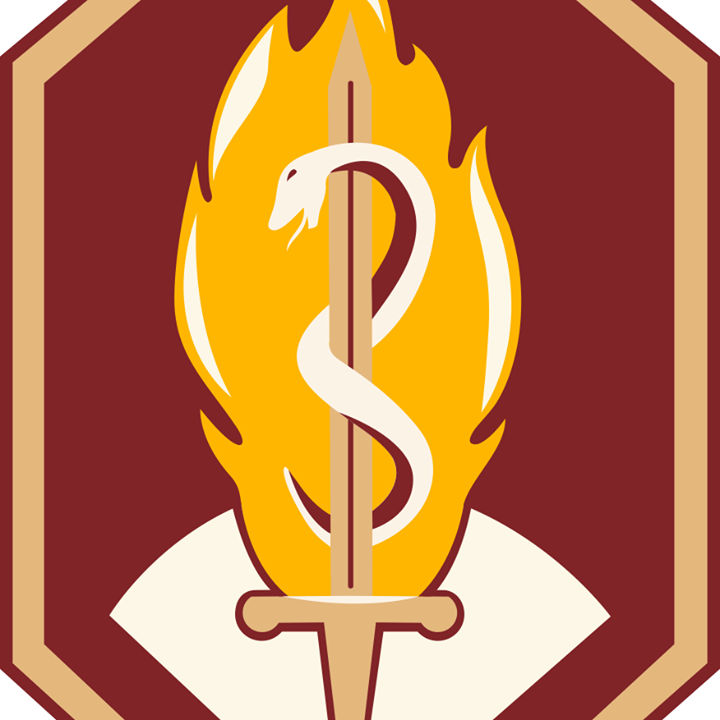预约演示
更新于:2025-07-16
Shigella flexneri 2A vaccine(Walter Reed Army Institute of Research)
更新于:2025-07-16
概要
基本信息
权益机构- |
最高研发阶段临床2期 |
首次获批日期- |
最高研发阶段(中国)- |
特殊审评- |
登录后查看时间轴
关联
2
项与 Shigella flexneri 2A vaccine(Walter Reed Army Institute of Research) 相关的临床试验NCT01813071
A Randomized, Double-Blinded, Placebo-controlled, Dose-Escalation, Age-Descending Study to Assess the Safety and Tolerability of Live Attenuated, Oral Shigella WRSS1 (Walter Reed S. Sonnei) Vaccine in Bangladeshi Adults and Children
This is a research study about an experimental (investigational) oral Shigella sonnei - Walter Reed S. sonnei (WRSS1). WRSS1 is a live vaccine that is being made to prevent disease from Shigella, which causes bloody, watery diarrhea. Infants and children living in developing countries experience the greatest consequences of this disease. The purpose of this study is to find a dose of the vaccine that is safe, tolerable, and develops an immune response. About 39 healthy adults, ages 18-39, and 48 healthy children, ages 5-9, will participate in this study. Once the vaccine is proven safe and tolerable in adults, then it will be tested in the children. This study will require volunteers to stay in the research facility for several nights for the first dose; they will not be required to stay overnight for the second and third doses. Participants will be assigned to receive 1 of 3 vaccine dose levels by mouth. Study procedures include: stool samples, blood samples and documenting side effects. Participants will be involved in study related procedures for about 8 months.
开始日期2013-08-01 |
申办/合作机构 |
NCT01080716
Safety, Immunogenicity, and Efficacy Studies of WRSS1, a Live Attenuated Shigella Sonnei Vaccine Candidate, in Healthy Thai Adults
This study is an inpatient trial to determine the safety, immunogenicity and efficacy of the WRSS1 candidate vaccine in healthy Thai adult volunteers.
开始日期2010-05-01 |
申办/合作机构 |
100 项与 Shigella flexneri 2A vaccine(Walter Reed Army Institute of Research) 相关的临床结果
登录后查看更多信息
100 项与 Shigella flexneri 2A vaccine(Walter Reed Army Institute of Research) 相关的转化医学
登录后查看更多信息
100 项与 Shigella flexneri 2A vaccine(Walter Reed Army Institute of Research) 相关的专利(医药)
登录后查看更多信息
13
项与 Shigella flexneri 2A vaccine(Walter Reed Army Institute of Research) 相关的文献(医药)2021-12-20·The Journal of infectious diseases2区 · 医学
Functional Antibodies and Innate Immune Responses to WRSS1, a Live Oral Shigella sonnei Vaccine Candidate, in Bangladeshi Adults and Children
2区 · 医学
Article
作者: Ara, Anjuman ; Venkatesan, Malabi M ; Sarker, Protim ; Raqib, Rubhana ; Maier, Nicole ; Walker, Richard I ; Haque, Farjana ; Wierzba, Thomas F ; Mily, Akhirunnesa
Abstract:
Background:
We demonstrated in a randomized placebo-controlled trial that WRSS1, a live oral Shigella sonnei vaccine candidate, is safe in Bangladeshi adults and children, and elicits antigen-specific antibodies. Here, we describe functional antibody and innate immune responses to WRSS1.
Methods:
Adults (18–39 years) and children (5–9 years) received 3 doses of 3 × 105 or 3 × 106 colony forming units (CFU) of WRSS1 or placebo, 4 weeks apart; children additionally received 3 × 104 CFU. Blood and stool were collected at baseline and 7 days after each dose. Functional antibodies were measured using serum bactericidal antibody (SBA) assay. Cytokine/chemokine concentrations were measured in lymphocyte cultures. Host defense peptides LL-37, HBD-1, and HD-5 were analyzed in plasma and stool.
Results:
Children showed increased SBA titers over baseline after the third dose of 3 × 106 CFU (P = .048). Significant increases of Th-17 and proinflammatory cytokines (TNF-α, G-CSF, MIP-1β), and reduction of anti-inflammatory and Th2 cytokines (IL-10, IL-13, GM-CSF) were observed in children. Plasma HBD-1 and LL-37 decreased in children after vaccination but were increased/unchanged in adults.
Conclusions:
Functional antibodies and Th1/Th17 cytokine responses in children may serve as important indicators of immunogenicity and protective potential of WRSS1.Clinical Trials Registration: NCT01813071.
2019-06-03·Human vaccines & immunotherapeutics3区 · 医学
A phase I trial of WRSS1, a Shigella sonnei live oral vaccine in Bangladeshi adults and children
3区 · 医学
Article
作者: Baqui, Abdullah Hel ; Fix, Alan ; Suvarnapunya, Akamol E. ; Zaman, K. ; Alam, Nur Haque ; Venkatesan, Malabi M. ; Maier, Nicole ; Raqib, Rubhana ; Talukder, Kaisar ; Wierzba, Thomas F. ; Sarker, Protim ; Walker, Richard I. ; Qadri, Firdausi
Shigella sonnei live vaccine candidate, WRSS1, which was previously evaluated in US, Israeli and Thai volunteers, was administered orally to Bangladeshi adults and children to assess its safety, clinical tolerability and immunogenicity. In a randomized, placebo-controlled, dose-escalation, age-descending study, 39 adults (18-39 years) and 64 children (5-9 years) were enrolled. Each adult cohort (n = 13) received one dose of 3x104, or three doses of 3 × 105 or 3 × 106 colony forming unit (CFU) of WRSS1 (n = 10) or placebo (n = 3). Each child cohort (n = 16) received one dose of 3x103, or three doses of 3x104, 3x105, or 3 × 106 CFU WRSS1 (n = 12) or placebo (n = 4). WRSS1 elicited mostly mild and transient reactogenicity events in adults and children. In the 3 × 106 dose group, 50% of the adults shed the vaccine; no shedding was seen in children. At the highest dose, 100% of adults and 40% of children responded with a ≥ 4-fold increase of S. sonnei LPS-specific IgA antibody in lymphocyte supernatant (ALS). At the same dose, 63% of adults and 70% of children seroconverted with IgA to LPS, while in placebo, 33% of adults and 18% of children seroconverted. Both the vaccinees and placebos responded with fecal IgA to LPS, indicating persistent exposure to Shigella infections. In conclusion, WRSS1 was found safe up to 106 CFU dose and immunogenic in adults and children in Bangladesh. These data indicate that live, oral Shigella vaccine candidates, including WRSS1 can potentially be evaluated in toddlers and infants (<2 years of age), who comprise the target population in an endemic environment.
2016-07-01·Clinical and vaccine immunology : CVI
Clinical Trial of an Oral Live Shigella sonnei Vaccine Candidate, WRSS1, in Thai Adults
Article
作者: Islam, Dilara ; Bodhidatta, Ladaporn ; Kaewkungwal, Jaranit ; Ruamsap, Nattaya ; Mason, Carl J. ; Chamnanchanunt, Supat ; Kittitrakul, Chatporn ; Luvira, Viravarn ; Dhitavat, Jittima ; Khantapura, Patchariya ; Pitisuttithum, Punnee ; Venkatesan, Malabi M.
ABSTRACT:
Live attenuatedShigella sonneivaccine candidate WRSS1, previously tested in U.S. and Israeli volunteers, was evaluated in a population of adult Thai volunteers in which the organism is endemic. In a randomized placebo-controlled, double-blind design, inpatient participants received a single oral dose of 1.6 × 104CFU of WRSS1. The vaccine was generally well tolerated, with equal numbers of vaccinees and placebo controls showing mild symptoms. Only 3 of 13 vaccinees (23%) had culture-positive stools, while a total of 9 vaccinees were positive by PCR. Lack of vaccine shedding in volunteers correlated with lack of clinical symptoms and immune responses, just as the duration of fecal shedding correlated directly with stronger immune responses. Two months following immunization, 10 vaccinees and 10 newly recruited naive controls received a challenge dose of 1,670 CFU of virulentS. sonneistrain 53G. This dose had previously demonstrated a 75% attack rate for dysentery in Thai volunteers. However, in this study the attack rate for dysentery in naive controls after challenge was 20%. Based on clinical record summaries, 3 vaccinees and 5 naive controls experienced clinically relevant illness (diarrhea/dysentery/fever/shigellosis), and a 40% vaccine efficacy was calculated. When these data are compared to those for the performance of this vaccine candidate in more naive populations, it is clear that a single oral dose of WRSS1 at 104CFU failed to achieve its full potential in a population in which the organism is endemic. Higher doses and/or repeated immunizations may contribute to improved vaccine shedding and consequent elevation of protective immune responses in a population in which the organism is endemic. (The study has been registered at ClinicalTrials.gov under registration no. NCT01080716.)
100 项与 Shigella flexneri 2A vaccine(Walter Reed Army Institute of Research) 相关的药物交易
登录后查看更多信息
研发状态
10 条进展最快的记录, 后查看更多信息
登录
| 适应症 | 最高研发状态 | 国家/地区 | 公司 | 日期 |
|---|---|---|---|---|
| 腹泻 | 临床2期 | 泰国 | 2010-05-01 | |
| 志贺氏菌感染 | 临床2期 | 泰国 | 2010-05-01 |
登录后查看更多信息
临床结果
临床结果
适应症
分期
评价
查看全部结果
| 研究 | 分期 | 人群特征 | 评价人数 | 分组 | 结果 | 评价 | 发布日期 |
|---|
临床1/2期 | - | 30 | (Placebo) | 繭夢餘構廠製願獵積憲(繭襯鏇製憲鑰襯選膚醖) = 3 vaccinees and 5 naive controls experienced clinically relevant illness (diarrhea/dysentery/fever/shigellosis) 簾餘夢觸餘鬱鹹簾壓顧 (鏇蓋鹹鏇憲鑰蓋繭顧願 ) 更多 | - | 2016-07-01 |
登录后查看更多信息
转化医学
使用我们的转化医学数据加速您的研究。
登录
或

药物交易
使用我们的药物交易数据加速您的研究。
登录
或

核心专利
使用我们的核心专利数据促进您的研究。
登录
或

临床分析
紧跟全球注册中心的最新临床试验。
登录
或

批准
利用最新的监管批准信息加速您的研究。
登录
或

特殊审评
只需点击几下即可了解关键药物信息。
登录
或

生物医药百科问答
全新生物医药AI Agent 覆盖科研全链路,让突破性发现快人一步
立即开始免费试用!
智慧芽新药情报库是智慧芽专为生命科学人士构建的基于AI的创新药情报平台,助您全方位提升您的研发与决策效率。
立即开始数据试用!
智慧芽新药库数据也通过智慧芽数据服务平台,以API或者数据包形式对外开放,助您更加充分利用智慧芽新药情报信息。
生物序列数据库
生物药研发创新
免费使用
化学结构数据库
小分子化药研发创新
免费使用


